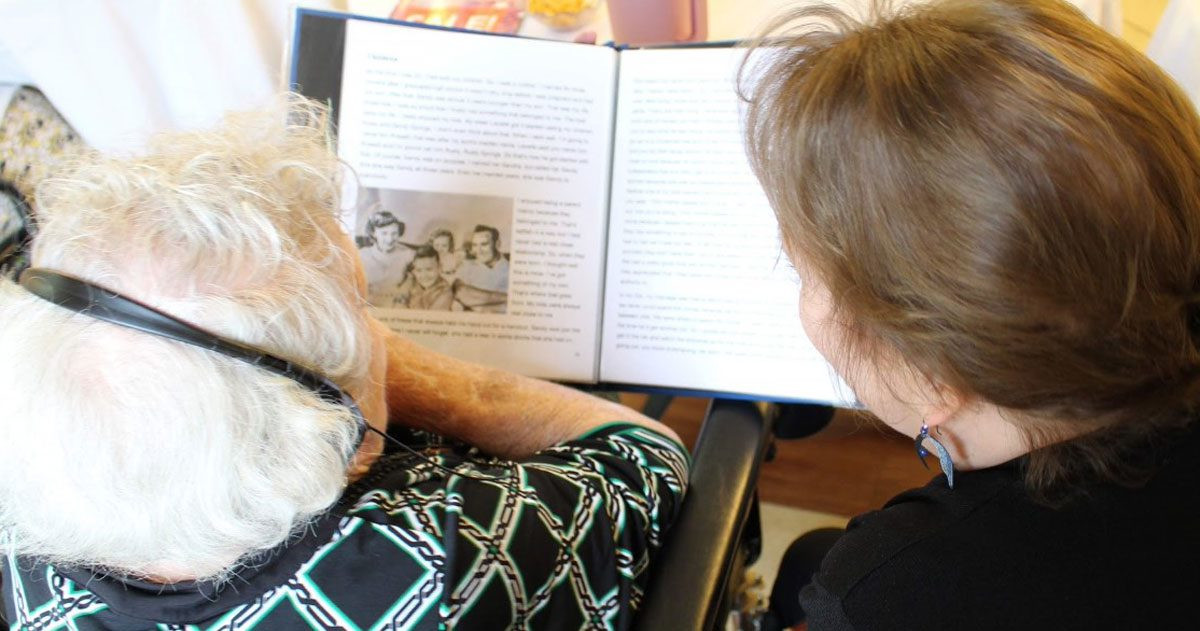Houston-area nursing home residents are often lonely and suffering from depression. Theresa Chrisman began a project while pursuing her Ph.D. from the UH Graduate College of Social Work to assist Houston-area nursing home residents in telling the story of their lives.
This both combats the negative effects of memory loss and alleviates malaise in this vulnerable cross-section of society. “There’s a whole lost population of people living in nursing homes who need to know they matter,” said Chrisman. “Life Story Work is intended to give a person the opportunity to voice their own life story, examine and integrate their past, make sense of their present, and share dreams or wishes for the future.”
Chrisman assembled — and patented — a story-capturing kit filled with story-gathering accoutrements. She promptly went to work as a self-dubbed “story catcher.” Starting with childhood and working forward, Chrisman and her research team interviewed nursing home residents about their memories from every phase of their lives.
Chrisman’s hypothesis was that those who participated in the Life Story Work intervention would decrease depressive symptoms. According to those who worked daily with the population, there was a renewed purpose and excitement generated by the project for all the elderly adults involved in the story capturing intervention.
Most interesting to Chrisman was that the residents cited “faith” as something that helped them get through the most difficult phases of their lives, almost unanimously. “Even after sharing very difficult stories, it was amazing to hear responses like ‘I’m appreciative of the good memories,’ ‘I think I started believing in myself again,’ and ‘My life is not over yet.’”
Chrisman was inspired to reach out to more nursing home residents after hearing comments such as, “I can’t believe you found me (in the nursing home) and wanted to listen to me.” She decided to form a company called Story Catchers™ Pro. Her desire is to provide and support professionals in listening and capturing older adults’ life stories into something tangible. One day she envisions hiring and training older adults to become Story Catchers to create Life Story Books with nursing home residents.
As a Story Catcher, Chrisman emphasizes that both verbal and nonverbal communication is essential when capturing these legacies. “We need to communicate in a way that expresses respect, never condescension or judgment,” she said. “It is important to not rush nor be afraid of silence or quiet reflection from our Storytellers. The use of prepared questions provides some structure for gathering memories across a lifetime, but the questions are intended to serve as jumping off points for stories; stories which may not have been thought about or spoken of for many years.”
Read more about Chrisman’s Story Catcher.
Image: Courtesy of Theresa Chrisman.
